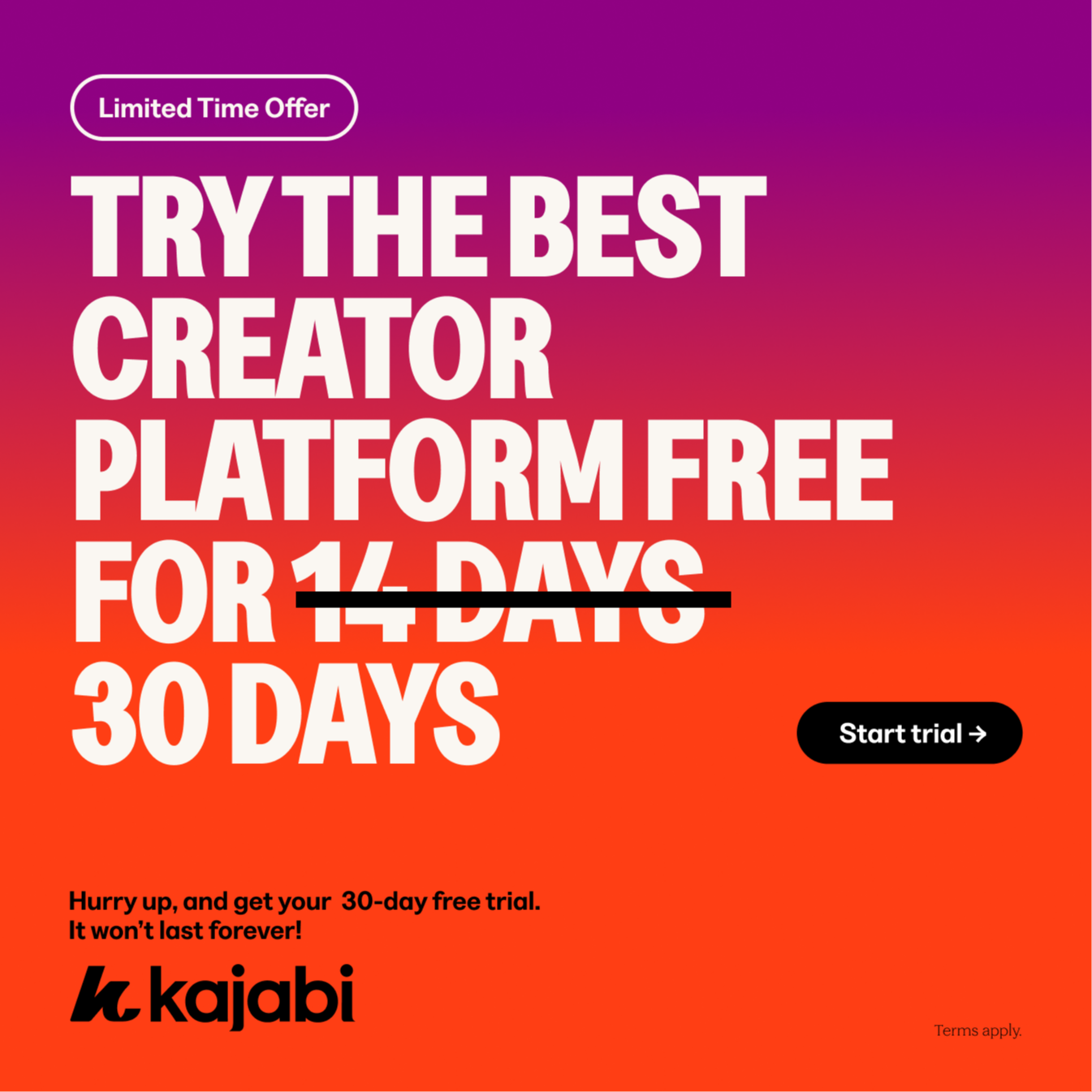Too Busy To Create Your Own Online Courses? This Could Be the Perfect Solution...

So you've heard about creating online courses as a means to generate income or build your brand. But what are your options for making it all happen? If you've been following our work for some time you'll know that we've written extensively advising you about the nitty gritty of course creation. Just take a look at our blog.
In this post, though we're zooming out and giving you the broader options so you can see what choices you have apart from the DIY route. We're not going to be selling you on the idea of creating online courses or highlighting all the benefits for you or your business. If you've still need convincing we'll leave that for another time.
Read this post for some great advice to help you determine what's the best route for you to take if creating an online course is on your agenda or might be in the future.
First, we're going to tell you about the four types of people/businesses that create online courses. Then we'll look at the four options you can choose from for getting your course created. And finally, I'll tell you how to get some further advice if you need it and have any other questions answered.
Whose Creating Online Courses Anway?
Based on our own experience and the research we've done there are four categories.
1. Owners of Subject Content
These are people that already have some intellectual property (IP) and want to re-purpose it and leverage further value from it. For example book authors, university lecturers, universities, colleges, trade organizations and professional bodies.
Each has their own IP which can be broken down into smaller elements and then re-purposed into further material that forms the basis of an online course and bite-sized micro-courses.
I also include here journalists and blog authors who have amassed material that can also be reused. A series of blog posts on a particular topic, for example, can form the basis of course content and vice versa.
Amongst this group we find part-time lecturers who may have a combination of work steams - lecturing, their own design studio, private classes and coaching etc. and are now looking to add online courses too.
2. Industry Professionals
This category includes individuals that have industry expertise but haven't yet created any 'material' from their expertise. In other words, their IP exists only in their minds and has yet to be articulated into a product.
Unlike those in the first category, they have yet to take the step of creating or writing anything that is based on their experience. They have no material as such, only their experience of working in the industry (which shouldn't be underestimated as to how valuable this is.)
However, they do see the opportunity to generate additional revenue by selling their expertise online. These are seasoned professionals with a wealth of experience already under their belt, confident of their message being a valuable asset to monetize online.
3. Businesses
Whether in HR or training, marketing or sales, creating an online course can save businesses considerable time and expense in on-boarding employees and customers, developing staff and assessing new candidates.
On-boarding customers helps to reduce customer churn i.e. losing customers to competitors. Informed and educated customers are more likely to stay with you as they build up confidence in your product or service. Increasingly we are seeing businesses using free online courses to help educate both prospective customers, new ones, and existing ones. For example companies such as Gerber using online courses for training end-users on their software.
And on-boarding employees has a similar benefit too. It enables new recruits to get up to speed and be more productive quicker and with less cost than traditional face to face training.
4. Consultants, Trainers, and Coaches
Finally, consultants, trainers, and coaches are now using online courses to generate additional revenue, expand their service and product portfolios and expand their brands. Just as books can position the author as an expert in a particular field, so too can online courses. Having a world-class online course in your field of expertise positions you as THE expert in that field. You become the 'go to' expert and consequently can increase your audience and sales revenue.
Offering free online courses is a fantastic tool for lead generation and can lead to opportunities for further consultancy work, speaking gigs, writing etc.
What then flows from a position as THE expert in your niche can be extensive and worth far more than the revenue generated from the course sales alone.

Four Options for Creating an Online Course
OK. Let's assume that you fall into one of these four categories. Now what? How do you go about creating your course?
The four choices you have are:
- Do It Yourself (DIY)
- Use a Course Creation Consultant
- Hire a Team of Freelancers
- Use a Course Creation Business (such as The Customer's Shoes)
Option 1 - DIY
Here you get to do everything yourself. It can be very rewarding going through the learning curve and developing new skills. You'll have to buy a course that teaches you how.
This option is great for subject experts that have lots of free time or can make the time, and don't mind if it takes several months to build their course. Although it's possible to get your first course up and live within a month, it takes discipline and following a strict process plan to make it happen.
You may need to invest in equipment and software but you can get your course up and published with the minimum of outlay. In fact in the masterclass, we tell you what you need and where to get free software if you need it.
Most people though already have sufficient tools with the latest generation of phones for filming video and software on their computers for creating slide shows and editing, so outlay is usually minimal.
The DIY approach has the lowest overall initial investment but you need to factor in your time to figure out the real investment you are making and be happy with the fact that it may take you several months to complete as you slot the activities in and around your usual routine of life.
Pluses
- Least upfront cost
- You learn some great new skills
- You are in total control of everything
Minuses
- It takes time.
- There are lots of things to learn.
- Normally takes longer to do than you think so hitting deadlines can be difficult.
Best For People Who...
-
Want to try their hand at course creation and find the quickest way they can to produce a course so that if it works they can expand their subjects and add further courses.
- Like to learn new things.
- Want to generate some passive income with a low risk.
- Have time available without disrupting their normal routine significantly.
Worst For People Who...
- Are already super busy and taking time out of their business for anything costs them significantly in lost sales and other business opportunities etc.
-
Want their course up and running within a few months.
-
Prefer having done-for-you services rather than DIY.
-
Just want the course and not having to develop new skills and invest in items they may never use again.
- Need a quality course completed within a few weeks.
Option 2 - Hire a Course Design Consultant
This option gives you a helping hand, a bit of a leg up.
Once you've dug around Google searches and found someone you feel comfortable working with and paid them a retainer, they'll design the strategy map for you and tell you what you have to do and in what sequence.
But it's you has to now do the execution work. Their skill set is in instructional design and it's not guaranteed they'll have all the other skills required to develop your course.
You get to save yourself some time and get some advice on the overall approach but you still have to do all the hard work and pretty much learn everything as if you were choosing the DIY option. We're happy to work with you as your course design consultants if this options suits you best.
Pluses
- Shortens your learning curve.
- Access to personalised support compared to following a course that teaches you what to do (unless it has support forums as we have built into our masterclass.)
- You will have someone that can give you different perspectives on course format, what works best and how to do go about things (as you will find in our masterclass.)
Minuses
- Difficult to know a good one from a bad one until you start using them. Many online course creation consultants are coming out of the woodwork either as marketing consultants adding a service to their pot or as graphic designers starting to do video recording and slide presentations and promoting themselves as course creators. In either case, they may lack the instructional design concepts that you'll need for effective course design.
- More expensive than the DIY route.
Best For People Who...
- Want a lot of personal support.
- Want to get involved in the building of the course itself and learn as they progress getting one to one support.
- Want the DIY option but also want their hand being held along the way.
- Have a healthy budget to pay for the support they need.
Worst For People Who...
- Are already super busy and taking time out of their business for anything costs them significantly in lost sales etc.
-
They want their course up and running in the near future.
-
Prefer having done-for-you services rather than DIY because there's still a lot of work you to have to do yourself.
-
Just want the course and not having to develop new skills and invest in items they may never use again.
- Need a quality course completed within a few weeks.
Option 3 - Hire a Team of Freelancers
On the face of it, this sounds like a smart move because you can hire the skill sets you need. For example a course design consultant for curriculum design, graphic designer to manage the look and feel of your course and generate all your graphic elements, someone to edit video and audio, a content writer to develop your content and everything the student will use as they progress through the course.
Whilst there are plenty of people for hire in these fields you have the added responsibility of finding them, choosing and hiring them. Then you have to on-board them and manage them as a project team to make sure your project gets done how you want it, by when and within budget.
The chances are you'll be hiring generalists rather than freelancers with expertise in working with online courses. As much as we recognise the value of diversity you have to manage the project and when the team is new and working on your first course the results will not necessarily be the best they can be the first time around. It will take a lot of your time and that's when everything goes to plan!
A good freelancing team is worth its weight in gold but you normally have to go through some pain before you get the right mix of individuals and form a team that delivers the results. And for consistent results, you need one that is stable enough to stay as a team and get your project done.
Pluses
- Great if you've already created several courses yourself, know the ropes and now want to scale up your course creation process.
- Ideal for people wanting to develop an online 'school' or 'academy' with a suite of different courses.
- You do very little implementation.
Minuses
- Will be very time consuming setting up the team (find, recruit, on-board, manage, pay etc.)
- Freelancers will be specialists in their own fields and typically not expert in course creation. This means you have to train and manage them to get to the point where they deliver what you want. Writing blog posts is not the same as writing lesson content. Creating lesson videos is not the same as graphic design.
- Freelancers can be unreliable and leave holes in your project if they leave.
- Egos can get in the way of relationships with negative impacts on productivity and end results.
- Can be more expensive in the long run compared to using a course design business especially when you factor in your management time.
Best For People Who...
- Want to scale up their courses on a regular basis.
- Don't want to do any implementation.
- Are used to managing teams of freelancers.
- Already have a great team of freelancers they use for similar projects and that have course creation experience.
Worst For People Who...
- Have difficulty managing people.
- Are only creating 2 -3 courses per year.
- Have a limited budget for time and finance.
- Have never worked with freelancers before.
Option 4 - Work With a Course Development Business
This option provides the optimum balance between investment and your time. This is where you SAVE the most amount of time, follow the smoothest and shortest path to success with the least amount of stress and disruption to your day job.
A course development business, like The Customer's Shoes, provides the strategy, the resources, and the expertise to manage the whole course development project for you. Your involvement is still key BUT the time you spend on tasks is kept to the bare minimum.
We estimate that you'll only need to find between 2 - 4 days of your time over a 12 week period. That's for calls with us to talk through your content and then for you to record your voice narrating the script for your course. We do all the other work whilst keeping you in the loop so you can rest easy knowing all's on track.
We work SME's (subject matter experts) to get their message from their minds (their combination of experience, know-how, and skill around their subject) and into a curriculum.
We do this by a series of interviews using carefully crafted questioning that distills the content required for the course.
Knowing what to ask, when to probe, what is key information and what is supportive is a skill we have developed based on our extensive background in learning and development, instructional design and course development over many years.
Pluses of Working With The Customer's Shoes
- Massive time-saving for you.
- Highest quality course.
- Best solution for your students.
- Quickest turnaround and completion (within 12 weeks.)
- You still keep all the assets that have been created for you.
- Releases you to focus on other areas related to the course such as marketing and promotion, building your audience before launch etc.
- Allows you to remain focused on your main responsibilities for your business with no negative effect.
Minuses
- Higher up-front outlay initially compared to the other options. But remember with the DIY normally time = money. For example, if you work as a consultant, trainer or coach, then you must factor in the lost opportunity cost of not being able to work on income generating tasks elsewhere in your business.
- You will learn some details about course development but never enough to create your next course alone.
Best For People Who...
- Are very busy most of the year and can't take on another sizeable project themselves.
- Want a great course, but can't wait for months and months to have it published.
- Like to delegate tasks to experts because they know it delivers the best value for them.
- Already have a book or other IP asset and want it transformed into a course quickly and to a high standard.
- Don't need, want or have the patience to learn new course creation skills.
Worst For People Who...
- Have a limited budget. In this case, choose either Option 1 or consider hiring us for Option 2 to work with you to develop your course curriculum but then the implementation is done by you.
- Perfectionists and micro-managers who like to have total control over what's going on every step of the way. If this is you then you'll probably struggle unless you get stuck in and get involved in the detail.

Summary of Your Four Options
Option 1 - DIY
If you have a very limited budget, want to learn new skills and have plenty of time on your hands or can find it, then choose the DIY route of option 1. Remember we can help you and guide you to a certain extent through our masterclass support forums. But how quickly it takes you to complete your course is dictated by how much time you take to learn the ropes and to execute and implement the course creation steps.
You'll need to learn the process too. Course fees range from free to £900.
Option 2 - Hire a Course Design Consultant
Great for when you want to implement most of the work yourself but just need to have some early guidance and involvement in structuring your course, defining learning objectives and the overall layout of the course. It's more expensive than Option 1 but quicker to implement and you'll learn through 1:1 guidance too.
We offer course design consultancy at £950/day.
Option 3 - Hire a Team of Freelancers
Now your workload shifts from implementation to managing freelancers. There's a lot of setting up time first off but once your team is up and running you can make good progress providing they understand and have experience of course creation otherwise you'll spend more time teaching them (assuming you know yourself) about the difference between what they do on other non-course projects and what you need them to do.
You'll find plenty of freelancers with rates from £25 - £100 per hour but you'll be at their mercy as to how long things take to get done so their hourly rate is only part of the equation. Would you really know how long it should take to write the content for a 15-minute video lesson?
Option 4 - Work With The Customer's Shoes
We proved a complete Created for Your service, taking your expertise and creating a premium course from it. Your initial outlay is higher but your downtime is the lowest overall so think about how much you value your time and factor that in. We give you the fastest turn around time and the highest quality.
We work on a retainer of £3000 deposit and then £3000/month over four months.
We manage the entire project with our own team of instructional and graphic designers, video, and audio editors, each hand-picked for their experience of working on course development.
We interview you (the subject expert) over several weeks to distill the content for your course. We build the curriculum around the objectives of the course and use your 'material' to create the content for your lessons. Beautiful graphics, beautiful video, beautiful handouts.
We only need you for the interviews done by Skype or phone and for you to record the narrative for each lesson. We'll give you advice and guidance on how to do this too.
Your completed course is then packaged ready for publishing to your preferred hosting platform.

What to Do Next
We're betting that you fit into one of the four categories above for the type of people that are creating their own online courses?
We're also betting that if you read each of the options above for getting your course built then you'll recognise which is the route best suited for you?
Now's the time to decide which route to take.
If you have any further questions then I recommend you read our FAQs page for our Course Creation service which you'll find here or you can schedule a call with us by clicking the link below and we will happily talk you through how we can help.
We call these Clarity Calls because that's what they promise to give you.
Book a Clarity Call now!
Schedule a Free Discovery Call
Are you looking for support in planning, designing, creating, publishing or promoting your online courses? Schedule a call and let's explore how we can help you.
GET KAJABI FREE FOR 30 DAYS
Try Kajabi for 30 days for free.

50% Complete
Add Your Details
Add your details and we will email you helpful advice and insights. You can unsubscribe at any time.



